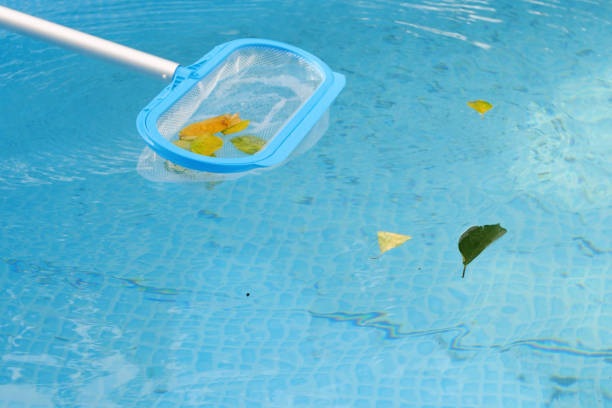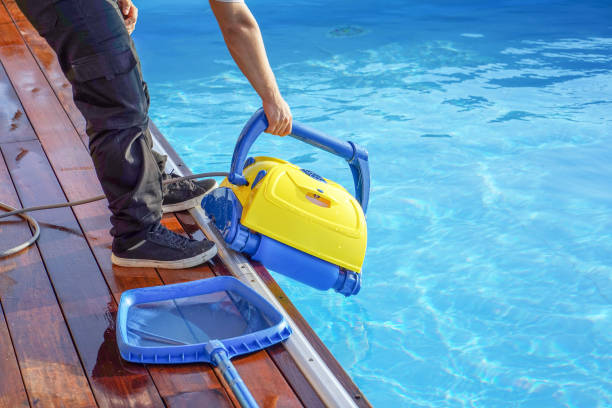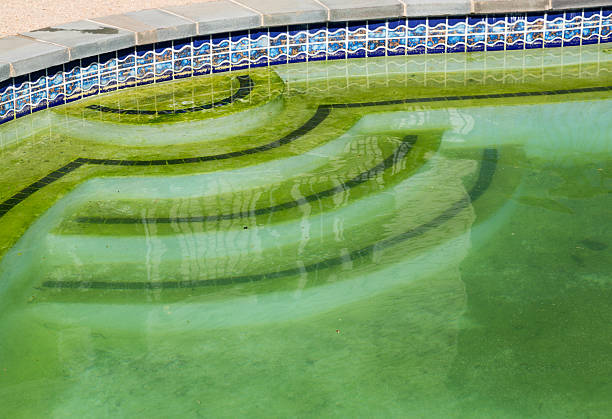A swimming pool is a luxurious addition to any home, but without proper pool cleaning, it can quickly become a breeding ground for bacteria, algae, and debris. Keeping your pool clean is not just about maintaining its aesthetics; it’s essential for ensuring a safe and healthy swimming environment. Regular pool cleaning enhances water quality, extends the lifespan of your pool equipment, and reduces costly repairs in the long run.
In this comprehensive guide, we’ll dive into the critical reasons why you should prioritize pool cleaning, the ideal frequency to clean your pool, and the best tools and methods to keep your oasis pristine and inviting.
Why You Should Clean Your Pool Regularly1. Prevents Algae and Bacterial Growth
One of the most important reasons for consistent pool cleaning is to prevent algae and bacterial infestations. Without proper maintenance, stagnant water becomes an ideal environment for harmful microorganisms to thrive, turning your clear pool into a green, murky mess. Regular pool cleaning with chlorine, shock treatments, and algaecides helps eliminate these unwanted guests.
2. Enhances Water Quality for Safe Swimming
A dirty pool isn’t just unpleasant to look at—it can pose serious health risks. Contaminants such as dirt, leaves, and even body oils accumulate over time, making the water unsafe for swimming. By following a strict pool cleaning routine, you can ensure a safe and hygienic swimming experience for you and your family.
3. Extends the Life of Pool Equipment
Neglecting pool cleaning leads to clogged filters, corroded pool pumps, and malfunctioning skimmers. These components are essential for water circulation and filtration, and regular maintenance prevents unnecessary wear and tear, saving you from costly repairs or replacements.
4. Improves Aesthetic Appeal
A well-maintained pool is a visual delight. Sparkling blue water invites relaxation and enjoyment, while a dirty, debris-filled pool can be unappealing and even embarrassing when hosting guests. Regular pool cleaning ensures your pool remains a beautiful backyard centerpiece.
5. Saves Money in the Long Run
Preventative pool cleaning measures can save homeowners a fortune. By addressing small issues like pH imbalances, scaling, and debris accumulation early, you avoid more significant problems that require professional intervention, resurfacing, or extensive chemical treatments.
How Often Should You Clean Your Pool?
The frequency of pool cleaning depends on various factors, including pool size, usage, surrounding environment, and weather conditions. Here’s a general guideline to ensure optimal cleanliness:
Daily Pool Cleaning Tasks:
- Skim the water surface to remove floating debris like leaves and bugs.
- Check the water level and refill if needed.
- Ensure the pool pump and filter are running efficiently.
Weekly Pool Cleaning Tasks:
- Brush the pool walls and floor to prevent algae buildup.
- Vacuum the pool to remove settled dirt and debris.
- Test and adjust the water’s pH, chlorine, and alkalinity levels.
- Empty the skimmer and pump baskets to maintain proper filtration.
Monthly Pool Cleaning Tasks:
- Backwash the pool filter to remove trapped debris.
- Inspect the pool pump, skimmer, and plumbing for any signs of wear or leaks.
- Shock the pool to break down contaminants and restore water clarity.
- Check for calcium buildup or scaling on pool tiles and walls.
Seasonal Pool Cleaning Tasks:
- Before summer: Perform a deep pool cleaning, test all equipment, and ensure the chemical balance is perfect.
- During fall: Increase skimming and vacuuming as more leaves fall into the pool.
- Before winter: Lower water levels, add winterizing chemicals, and cover the pool to prevent debris accumulation.
The Best Tools and Methods for Effective Pool Cleaning
1. Pool Skimmers for Daily Debris Removal
A high-quality skimmer is an essential pool cleaning tool for removing leaves, bugs, and dirt before they sink to the bottom. Make it a habit to skim the pool’s surface daily to prevent debris accumulation.

2. Pool Brushes to Prevent Algae Buildup
Brushing your pool walls and floor weekly prevents algae growth and stubborn stains. Use a stiff-bristled brush for concrete pools and a soft brush for vinyl liners to avoid damage while ensuring thorough pool cleaning.
3. Pool Vacuums for Deep Cleaning
Automatic pool vacuums, such as robotic or suction-side cleaners, simplify pool cleaning by efficiently removing dirt from the pool floor and walls. For manual pool cleaning, a standard pool vacuum with a telescopic pole works well.

4. Pool Filters for Continuous Filtration
Your pool’s filter system is the backbone of pool cleaning, as it continuously removes dirt, debris, and bacteria. Whether you have a sand, cartridge, or diatomaceous earth (DE) filter, regular maintenance is crucial to keep it functioning effectively.
5. Chemical Treatments for Water Balance
Maintaining proper chemical levels is key to effective pool cleaning. The ideal chemical balance includes:
- pH Level: Should be between 7.2 and 7.6.
- Chlorine Level: Typically 1-3 ppm to kill bacteria and algae.
- Alkalinity Level: Should be between 80-120 ppm to prevent pH fluctuations.
- Calcium Hardness: Keeps water balanced and prevents scaling.
Shocking the pool once a month helps break down organic contaminants, keeping your water crystal clear and safe for swimming.
Signs That Your Pool Needs Immediate Cleaning
Ignoring pool cleaning can lead to serious problems. Here are signs that your pool needs urgent attention:
- Cloudy or Murky Water: Indicates chemical imbalance, algae growth, or poor filtration.
- Green or Black Algae Growth: Requires immediate chemical treatment and scrubbing.

- Strong Chlorine Smell: A sign of excessive chloramines, meaning the pool needs shocking.
- Slimy or Slippery Pool Surfaces: Indicates algae buildup requiring thorough pool cleaning.
- Debris Accumulation: Leaves and bugs in the water suggest the need for increased skimming and vacuuming.
Pro Tips for Maintaining a Clean Pool Year-Round
- Run the pool pump for at least 8-12 hours daily to ensure proper circulation and filtration.
- Regularly test and adjust chemical levels to maintain a balanced and sanitary environment.
- Invest in a pool cover to prevent debris buildup and reduce the need for excessive pool cleaning.
- Keep trees and plants trimmed to minimize the number of leaves falling into the pool.
- Schedule professional pool cleaning services for deep maintenance at least twice a year.
Final Thoughts: Make Pool Cleaning a Priority for a Safe and Refreshing Swim
A clean pool is not just about beauty—it’s about health, safety, and longevity. By implementing a regular pool cleaning routine, you ensure a sparkling, inviting, and hygienic swimming space for your family and guests. Whether you’re skimming the surface, balancing chemicals, or vacuuming debris, every step contributes to a healthier, more enjoyable pool experience.
By prioritizing pool cleaning, you’ll not only maintain the pristine condition of your pool but also create an environment where you can relax and unwind without worry. So grab your skimmer, test those chemical levels, and dive into a refreshing, crystal-clear oasis!
